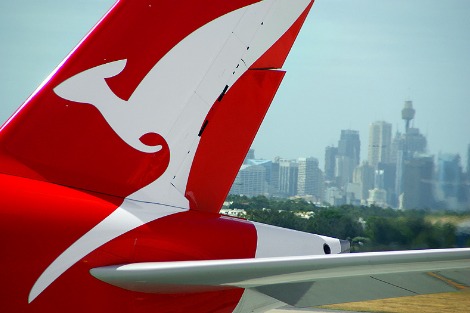Keywords: Capitalism
There are more than 200 results, only the first 200 are displayed here.
-

RELIGION
- Neil Ormerod
- 17 December 2013
27 Comments
Pope Francis' vision for the church of the poor is now joined to a stinging critique of our globalised economy which promotes a 'new tyranny' of unfettered capitalism and an attack on the 'idolatry of money'. While such language has not been uncommon, buried in the riches of Catholic social teaching, this pope has made it up front and centre stage of his message.
READ MORE
-

AUSTRALIA
- John Falzon
- 17 December 2013
13 Comments
Recently Pope Francis blasted the so-called trickle-down economic theories in his apostolic exhortation Evangelii Gaudium. Some will scorn his message as naive at best and dangerous at worst, while others will regard it as an urgent enkindling of hope in the face of degradation and despair. The Christmas story hints that another kind of world is possible.
READ MORE
-

AUSTRALIA
- Ray Cassin
- 13 December 2013
33 Comments
The immediate responsibility for this looming economic disaster rests with the Abbott Government, and not merely because of its use of a bullying speech in Parliament by the Treasurer, Joe Hockey, to goad Holden into announcing a decision that its masters in Detroit had probably already taken. In the longer term, this should be seen as a bipartisan disaster. What happened this week was the culmination of a process that began under Hawke.
READ MORE
-

AUSTRALIA
- Michael Mullins
- 09 December 2013
6 Comments
No patriotic Australian wants to see Qantas go out of business. But the principles of both good business and social inclusion demand the government not thwart competition from Virgin and its cashed up foreign shareholders. In two decades, competition has lowered fares and made it possible for less privileged Australians to fly.
READ MORE
-

ARTS AND CULTURE
- Michael McVeigh
- 10 July 2013
10 Comments
His body itself is a symbol of his inherited power and privilege. He hears women talk about being afraid to go out at night alone. He sees the great strides women have made in the workforce, yet sits in management meetings where nine out of ten leaders are men. He sees bikini clad women on his television screen and feels guilty at admiring their bodies.
READ MORE 
-

ARTS AND CULTURE
- Tim Kroenert
- 06 June 2013
5 Comments
In the 1920s New York society of Gatsby, money is literally God: benevolent to some; laying waste to the lives of others. It's a tough call whether Luhrmann has deliberately dumbed down Fitzgerald's text in order to appeal more readily to a mass market. If cinema was a medium to excite the eyes and ears while relaxing the brain, he'd be a master.
READ MORE 
-

AUSTRALIA
- Fatima Measham
- 20 March 2013
7 Comments
The Prime Minister's aggressive attempts to tighten the rules for 457 visas is part of a campaign to appease her party's blue-collar base. This didn't begin last month in Western Sydney; it was kick-started as far back as 2011 when she said the 'Australian Greens do not share Australian values'.
READ MORE 
-

AUSTRALIA
- Duncan MacLaren
- 20 February 2013
5 Comments
'Development is the new name for peace,' said Pope Paul VI in 1967. Well, not in Burma, where wars and religious disputes have caused the death or displacement of 190,000 people. Such horror stories don't concern the Western and Chinese business people who sweep in, salivating, to 'develop' Burma.
READ MORE 
-

AUSTRALIA
- Gillian Bouras
- 16 January 2013
6 Comments
I have always felt safe in Athens, but recently, while travelling in a crowded train, I was jostled by several large young men. When I alighted, feeling more than a little shaken, I discovered that my wallet was missing from my bag. There have long been beggars in Greece, but now there are many more, and of a new type.
READ MORE 
-

ARTS AND CULTURE
- Ellena Savage
- 21 December 2012
2 Comments
My most vivid childhood Christmas memories have little to do with Christmas. In one, I'm rifling through the antique wooden bowl beside my grandmother's fireplace, finding hundreds of ancient marbles. They glow in the amber light that spills through the hand-crafted lead-glass lights. I don't even remember the presents I got that year.
READ MORE 
-

ARTS AND CULTURE
- Tim Kroenert
- 18 October 2012
On a television in a grimy bar, Barack Obama waxes lyrical about the unity of the people. In the foreground, a brutal and enigmatic enforcer of the criminal underworld scoffs. America is not a community, he counters — it's a business. 'I'm living in America, and in America, you're on your own.'
READ MORE 
-

ECONOMICS
- David James
- 03 October 2012
7 Comments
The demise of Gunns, Tasmania's biggest paper and pulp mill, has been greeted as a triumph of environmentalists over business. The saga encompasses much more than that. It poses some deep questions about ownership and accountability in Australia's financial system which are yet to be answered persuasively.
READ MORE 